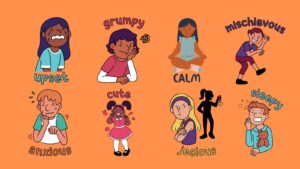Academic English Collocations: ColloCaid
Teachers, editors, proof-readers, or indeed anyone who regularly reviews texts can confirm that many writers struggle when choosing word combinations which sound natural. In general, choosing strong collocations (words that fit together well) can be tricky. Why can we say powerful computer but not strong computer? In academic writing, the problem is particularly evident; why do we write carry out research but not make research? Why do we write greatly improve but rarely highly improve? These types of questions can bother writers as much, if not more than, questions about grammar and spelling. Fortunately, there are lots of resources out there to help.
Dictionaries
Dictionaries are an obvious first port of call. Traditionally, a unique selling point of monolingual learners’ dictionaries, has been the extra attention they pay to the context in which words can be used. This can be seen in the greater number of examples provided compared with general dictionaries. The digitalisation of dictionaries has brought further opportunities for innovation, take, for example, the recently introduced ‘Explore Collocations’ feature at macmillandictionary.com. For users of academic English, there are also more specialised resources dealing with collocations like the Oxford Learner’s Dictionary of Academic English.
In addition to helping with writing, which involves finding information about how words are used in context, people turn to dictionaries for a multitude of reasons, for example: to look up the meaning of a word, to check alternative spellings, or to settle disputes in word games! It is hardly surprising, that general learners’ dictionaries, which must try to be all things to all people, are limited in the amount of collocation information they can provide. Collocation dictionaries, on the other hand, are designed specifically to help with writing and they offer detailed information on a far greater number of collocations. Notable examples include the Oxford Collocation Dictionary for Students of English, the Macmillan Collocation Dictionary for Learners of English, and the Longman Collocations Dictionary and Thesaurus.
One disadvantage of all types of dictionaries, however, is that, irrespective of how well designed they may be, people are often not aware of how to use them effectively for writing.
Textbooks
The attention devoted to collocations in EAP writing textbooks, speaks not only to the importance of word combinations in academic writing, but also to the difficulties they can cause for students. Textbooks such as the English Collocations in Use and Academic Vocabulary in Use series are excellent resources for EAP classes, but do not really meet the needs of the user when the time comes to write in a solo capacity.
Corpora
Today, the makers of all the major English learners’ dictionaries analyse corpora (huge collections of texts processed by computers) when compiling their dictionaries. Why not cut out the intermediary and have writers resolve their collocation questions using corpora directly? There are many web interfaces which allow users to consult a corpus (or several corpora) directly. For example, the www.english-corpora.org interface, allows users to explore a range of English language corpora. SketchEngine is a resource which not only has corpora available to use out of the box, but also allows users to create custom
DIY corpora
Although great improvements have been made to the user-friendliness of these interfaces in recent years, they can seem daunting at first. As with dictionaries, training is required to use them effectively. New users of corpora often feel adrift, lost in a sea of data and options, when all they really want to do is resolve their language doubts and get back to the writing task at hand.
Several developers of corpus interfaces, realising how dauting these resources can be for casual users, have released pared-down versions of their tools for language learners. In the realm of general English, Sketch Engine for Language Learning (SKeLL) provides a free simplified version of the Sketch Engine that helps users to explore collocations.
Even when corpora are easy to use, it is important to be aware that, unlike many textbooks, corpora are made up of real-world texts which have not necessarily been proofread for errors. Common misspellings (for example: *accommodate) and grammar mistakes (for example: *less people) are as common in corpora as they are in the real world. This serves to show that great care must be taken when using corpus data for teaching and learning purposes.
ColloCaid
A problem with the resources mentioned above is that they require writers to leave their texts to look up collocations. In other words, they have to stop using their text editors to start using textbooks, dictionaries, corpora or whatever else they wish to consult. ColloCaid offers collocation suggestions directly in a text editor, in a way that is not distracting to writers.
ColloCaid in action
The familiar text editor interface, means little training is required for writers to be able to use ColloCaid effectively. ColloCaid provides collocation suggestions and examples that have been extracted from texts written by expert writers and carefully chosen and adapted to ensure that they are appropriate, error free and useful, particularly for academic writing. ColloCaid is available to use for free on the ColloCaid website. ColloCaid has been used by English teachers, students, and researchers writing in English all over the world.




